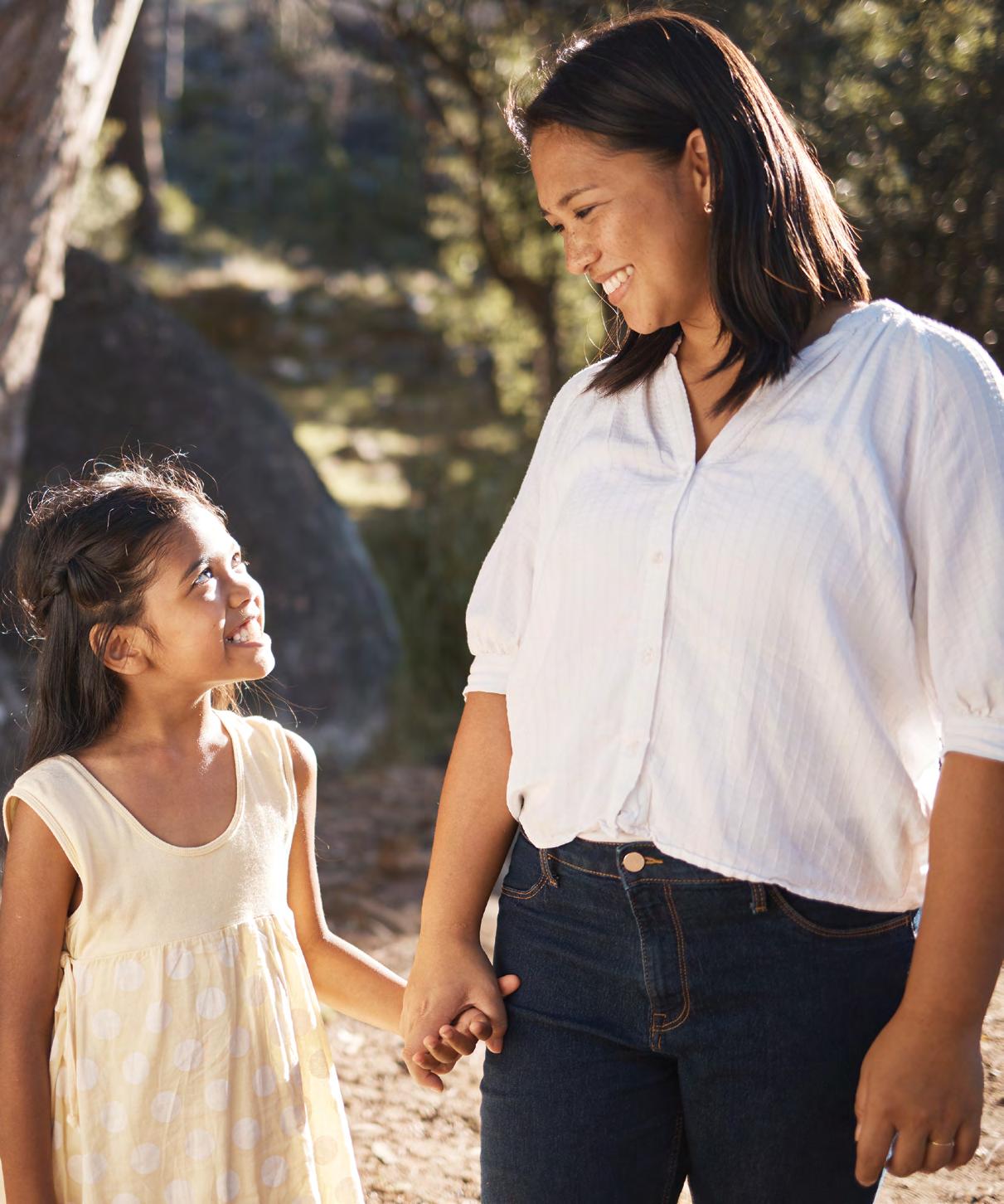
5 minute read
How to Teach Communication Skills to Children
Around the time my twins turned 13, I noticed they barely greeted me when they came home from school. After a mumbled “hello,” they scampered off to their rooms followed by an immediate closing of their doors, in unison. My son has never been much of a communicator, but my daughter used to plop down next to me and give a detailed review of her day.
Many parents experience a lack of communication from kids and are looking for ways to bridge the gap. According to Dr. Ken Ginsburg, founding director of Center for Parent and Teen Communication, it is important to build a foundation of communication skills and establish consistent two-way dialogue early so kids feel comfortable talking to parents as they mature and face various life challenges.
Ginsburg also explains that when parents communicate with middle school-age kids, it helps them make healthy connections at home, in the workplace and with future partners. “It’s about building a foundation for healthy relationships and gaining emotional awareness, enabling them to advocate for themselves,” he says.
So how can parents help their kids develop communication skills?
Take Time to Listen
Ginsburg recommends parents maintain a consistent presence in their child’s life. One way to do that is by showing interest in their activities, passions and hobbies. Ask about school events, afterschool activities, class projects and friends. Make yourself available when they need to talk (even if timing is inconvenient) and be a sounding board.
Even when it seems like kids don’t want to talk, it’s important to continue to try; keep lines of communication open. When they do talk to you, listen carefully. Teens often feel as if parents don’t understand them. One way to overcome this is rephrasing back what they said to you and validating any feelings shared.
Be a Role Model
“Model skills you want to pass along,” Ginsburg says. “Let [kids] see how you resolve emerging conflicts, bounce ideas off others and seek help when needed.”
Even when kids spend time in their rooms or are seemingly “checked out,” they are paying more attention than you think—to your words, actions and behaviors. Think about what kids are hearing, observing and experiencing at home.
“Being the best role model [possible] is one of the most natural teaching tools you have as a parent,” says Ginsburg.
Communication Skills to Learn
Kids entering middle school are entering a complex stage of development. They have one foot in childhood and the other foot is stepping towards adulthood. “Their bodies are changing, emotions are in flux, and they are working to figure out where they fit in with peers, friends and their communities,” says Ginsburg.
During this developmental phase, important skills to have are the ability to cooperate with others, successfully negotiate peer situations, resolve conflict, have empathy for others and an awareness of nonverbal cues, and express emotions in a variety of situations.
Clearly these skills will not be developed overnight; they take practice. That’s why it’s important to start when kids are younger.
Practice and Provide Guidance
One way to help children learn communication skills is role-playing. Act out situations that may be difficult, such as which lunch table to sit at, and then offer suggestions about phrases to use. Depending on the child’s age, make it fun by labeling it as a game.
If your child isn’t in the mood to speak, try talking about yourself or your daily activities. Often this takes the pressure off them to communicate; they may end up asking questions or showing interest in what you’re saying. Many experts agree that natural sideby-side conversations are more inviting to adolescents than being face-to-face. Try having a discussion while in the car together, walking through the park or sitting next to each other while working on a fun project.
Sometimes kids experience peer pressure and aren’t sure how to navigate the situation. Ginsburg recommends establishing a code word within your family. “Developing a code word gives kids a safety net while they develop social skills,” he says. If your child is out with friends and contacts you using the code word, that is a cue to say, “time to come home” or to pick them up, whatever you’ve agreed upon in advance.
Kids learn communication skills through trial and error. “Tweens and teens are more motivated when they own their solutions,” Ginsburg says. In other words, provide space to learn and guidance, but don’t solve all their problems for them.
Remember They Love You
It’s hard when kids don’t want to talk to parents or prefer talking to friends, but this is a normal developmental phase. “Peers may seem more important, but no one is as valuable as parents,” Ginsburg says. And no one has the opportunity to have more influence on kids than parents.
“Kids still need your love, support, guidance and structure. Balancing these elements is part of the most effective parenting style, known as ‘lighthouse parenting.’” v
Cheryl Maguire is a freelance journalist.
Pick up the October issue of San Diego Family Magazine to learn about lighthouse parenting.

